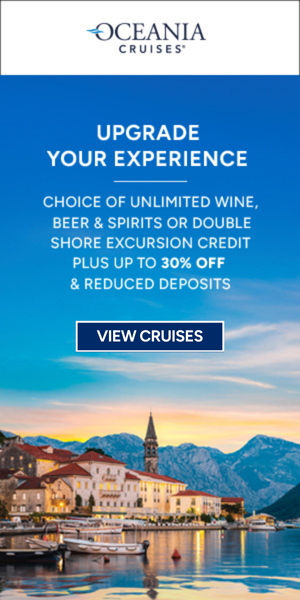Seven Steps To Achieving Travel Inclusiveness
by Steve Gillick
Fact #1: Many people with disabilities love to travel, have adventures, soak up culture and indulge in niche market interests.
Fact #2: More often than not, people with a disability travel with at least one companion and often with family.
Fact #3: In Europe alone it is estimated that $165 billion is left on the table due to the belief that accessible tourism is just a niche market with little profit potential.
With this lucrative business just around the corner from your agency, what are you waiting for? Here are seven ways to include travelers with disabilities among the treasured clients that provide you with testimonials, referrals and lots of business.
1. Overcome the unknown. Challenge your agency to learn about the needs of disabled travelers and then put together an Action Plan to get them in your door or visit them where their ease and comfort are recognized and accommodated.
2. People are people. Understand that a disability does not define someone’s intelligence or personality. Disabled people ski, scuba dive, hike, birdwatch, take cooking classes, climb mountains, enjoy all-inclusive resorts and book cruises to exotic destinations.
3. Ask! Just as you interview able-bodied clientele to discover their needs, do the same for those with a disability.The mantra is that if you don’t know, then ask! Ask what the client requires for the transfer to the airport, in the airport itself, boarding the plane, on the flight, getting through immigration and customs at the other end, transferring to the hotel or cruise, in the hotel or on the cruise ship, at meal times, etc.
4. All or nothing. While tourism is slowly catching on to the idea of inclusiveness (travel experiences that include all who wish to travel), some hotels and attractions feel they have done their part by placing a ramp for better access. But when the client enters the room, the wheelchair can’t fit through the bathroom door and there are no grab bars to allow them to bathe or take a shower. Accessibility is all or nothing. But still, many disabled travelers will appreciate the “foundation steps” that suppliers are able to offer as a prelude to future inclusivity.
5. Engage suppliers and tour operators. Contact your suppliers to get an honest appraisal of the accessibility of their property or attraction or service. Explain the All or Nothing rule above. If they question the long-term value of accommodating disabled travelers, remind them that in a world where the number of seniors is growing exponentially, the benefit of making improvements will definitely accrue to all travelers in the future.
This is also the opportunity for you to start a list of suppliers in every category who offer basic accessibility and those that offer full accessibility. Don’t dismiss the basic ones as your disabled clients may be fine with what is offered—but you have to disclose the information and ask the client.
6. Safety, security, comfort. All travelers, whether able-bodied or disabled, seek similar experiences when it comes to their safety, security and comfort. Concepts such as upselling and cross-selling pertain, descriptions such as adventure, super-luxury and FITs, apply, and the excitement and challenge of customizing the itinerary to suit the specific interests of the clients is wholly relevant.
7. Evaluate. As with any trip, evaluating the experience is a key factor in letting the client know that have a vested interest in knowing how things went, but also in making improvements for the future. Speak with the travelers and their companions to see not only whether the arrangements were satisfactory, but also to plan the next adventure.
The expression “Try Walking in My Shoes” is not only a great Depeche Mode song but also a theme your agency can adopt when dealing with travelers with disabilities. As a Travel Advisor you love to connect with the destination, people and culture. Your clients love to do the exact same things and want to take advantage of your expertise. Your marketing should be as inclusive as possible and aimed not only at the 85% able-bodied but also the 15% with disabilities.
Take a step toward inclusivity by rounding out your reputation as the ‘Go To’ person or agency for excellent travel services …for every traveler.
























